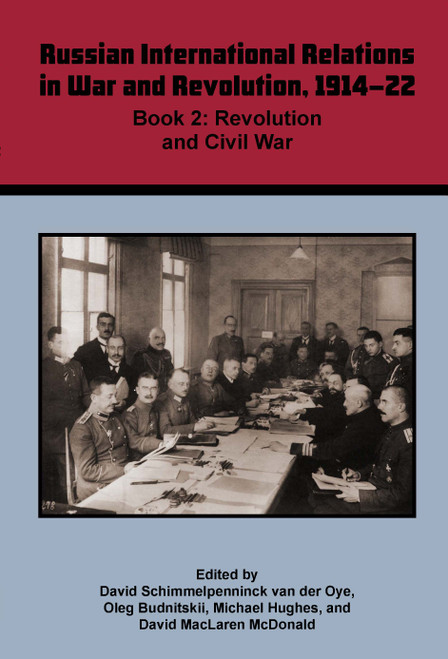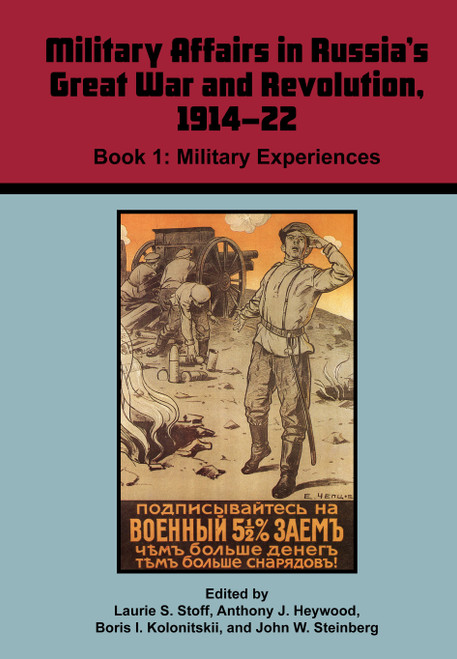Product Overview
Historians devote a great deal of attention to the diplomacy that led Russia into the Great War, but have tended to neglect the course of this diplomacy once the fighting erupted. This volume addresses that lacuna with a broad range of essays examining the foreign relations of the empire, as well as its republican and early Soviet successors, from the July 1914 Crisis to the end of the Civil War in 1922. Written by distinguished and emerging scholars from North America, Europe, Russia, and Japan, the essays make abundant use of Russian archival collections, largely inaccessible until the 1990s, to reassess the conjectures and conclusions previously drawn from other sources. While some chapters focus on traditional “diplomatic” history, others adopt new “international history” by placing Russia’s relations with the world in their social, intellectual, economic, and cultural contexts. Arranged in roughly chronological order, the first volume covers the late imperial period, from 1914 through mid-1916, while the second proceeds through the revolutions of 1917 and the Civil War, up to the end of that conflict in 1922. Together, these books’ comments should foster a renewed appreciation for international relations as a central element of Russia’s Great War and Revolution.
David MacLaren McDonald, Introduction
https://doi.org/10.52500/UTGI6993
David Schimmelpenninck van der Oye, The Historiography of Russian International Relations during the Great War and Revolution
https://doi.org/10.52500/SWZE7383
Dominic Lieven, Russia against Napoleon and Wilhelm: Explaining Success and Failure
https://doi.org/10.52500/LDYM8120
David MacLaren McDonald, From Tsushima to the July Crisis
https://doi.org/10.52500/HRYX6681
Marina Soroka, The Russian Foreign Ministry in War and Revolution
https://doi.org/10.52500/KRMX6802
Irina Sergeevna Rybachenok, Russian Foreign Policy at the Turn of the 20th Century: Goals, Challenges, and Methods
https://doi.org/10.52500/TAGF9628
Elizabeth Greenhalgh, Managing a “Long-Distance” Coalition War: France and Russia, 1914 to Early 1917
https://doi.org/10.52500/WUJO9882
Keith Neilson, Anglo-Russian Relations in the First World War
https://doi.org/10.52500/KKZJ7629
Sean Gillen, “A Great Russia”: The State of a Free, Disciplined Nation, 1904–14
https://doi.org/10.52500/WGCJ2199
David Schimmelpenninck van der Oye, From the Guns of August to Sazonov’s Fall
https://doi.org/10.52500/YDSH1036
Jennifer Siegel, Foreign Finance and Russia’s War Effort
https://doi.org/10.52500/TNJQ2448
Ronald P. Bobroff, The Question of the Turkish Straits during World War I
https://doi.org/10.52500/QEAF8183
T. G. Otte, The Waning of the Monarchies: War, Revolution, and Royal Diplomacy
https://doi.org/10.52500/GFBZ4374
Evgenii Iur´evich Sergeev, Russian Military Intelligence in the Coalition War, 1914–18
https://doi.org/10.52500/DIPZ6381
Kirill Andreevich Solov´ev, The State Duma and Russian Foreign Policy in the Great War
https://doi.org/10.52500/KNXU4640
Alexander Polunov, The Russian Orthodox Church in Years of War: International Activity and Plans for Postwar Reconstruction
https://doi.org/10.52500/GVMP7865
Aleksandr Vladimirovich Golubev and Ol ́ga Sergeevna Porshneva, The Image of the Ally in Russian Public Consciousness in the Context of World War I
https://doi.org/10.52500/CUTI6940
Tatiana Filippova, Pickelhaube and Fez: The German and the Turk in Russian Satirical Journals during the Great War
https://doi.org/10.52500/TRQU6767
Alexandre Sumpf, Defining Enemy Atrocities: Krivtsov’s Extraordinary Commission
https://doi.org/10.52500/XLYZ3657
Wim Coudenys, High Politics in a Small Country: Belgian-Russian Military Relations in War and Revolution
https://doi.org/10.52500/UNAZ4484







